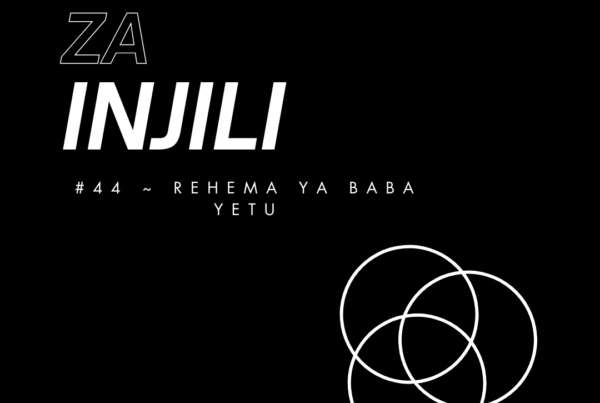Mungu Mtukufu aliye Bwana Lyrics [Nyimbo za Injili 1]
1 Mungu Mtukufu aliye Bwana,
Akamtoa Yesu Mpendwa Mwana;
Akawa dhabihu kwa dhambi zote,
Kufungua njia kwa watu wote.
Msifuni, msifuni,
Nchi imsikie;
Msifuni, msifuni,
Bwana mshangilie:
Njooni kwake Baba
Kwa Yesu Mwana,
Mpeni heshima,
Aliye Bwana.
2 Ukombozi wetu, tendo la Mungu,
Ni ukamilifu kwa kila mtu;
Mwenye ukosefu akimwamini,
Atasamehewa na Yesu, kweli.
3 Ametufundisha mambo ya mbingu,
Tukafurahishwa na Mwana Mungu;
Ametuinua tukae naye,
Atatuongoza hata milele.
Equivalent Hymn (English Translation):
To God, be the Glory
1 To God be the glory
Great things He has done
So loved He the world that He gave us His Son
Who yielded His life an atonement for sin
And opened the life-gate that all may go in
Praise the Lord, praise the Lord
Let the earth hear His voice
Praise the Lord, praise the Lord
Let the people rejoice
Come to the Father
Through Jesus the Son
Give Him the glory
Great things He has done.
2 O perfect redemption, the purchase of blood
To every believer the promise of God
The vilest offender who truly believes
That moment from Jesus a pardon receives
3 Great things He has taught us, great things He has done
And great our rejoicing through Jesus the Son
But purer, and higher, and greater will be
Our wonder, our worship, when Jesus we see
Notes
“To God Be the Glory”, first published in 1875, was composed by Fanny Crosby and “tuned” by William Howard Doane. It appears to have been created around or before 1870 since it was first published with Doane’s tune in Songs of Devotion (1870). Thereafter, it was published in Robert Lowry and Doane’s hymn compilation “Brightest and Best” in 1875.
This hymn and “Blessed Assurance” are among the best-known and most-loved hymn texts of the thousands Crosby produced. Initially ignored in the United States, the hymn was sung in British churches after its inclusion in Ira D. Sankey’s Sacred Songs and Solos (1903). In 1954, the song leader for Billy Graham, Cliff Barrows, was given a copy with the suggestion that “To God be the Glory” be included in the songbook for the London Crusade. It was so well-loved that he included it again later that year in the Crusade in Nashville, Tennessee. The audience responded enthusiastically and from that time on, he used it frequently.
Thus, the hymn gained great popularity in Britain and Australia as well as in the United States. With this exposure, the hymn quickly became well-known to Christians worldwide and is printed in most modern hymnals.
God
The hymn seems to be inspired by John 3:16 (Galatians 1:4-5) given that it directs our attention away from personal experience to the glory of God. God so loved the world that he gave us his Son to make atonement for sin (st. 1); all who believe in Christ will receive pardon (st. 2) and will rejoice now and through all eternity because of the “great things he has done” (st. 3). The refrain borrows its praise in part from the Old Testament psalms (Psalm 126:2-3).
The phrase “when Jesus we see” (st. 3) must have meant something special to Crosby, who was blinded when she was seven weeks old.




